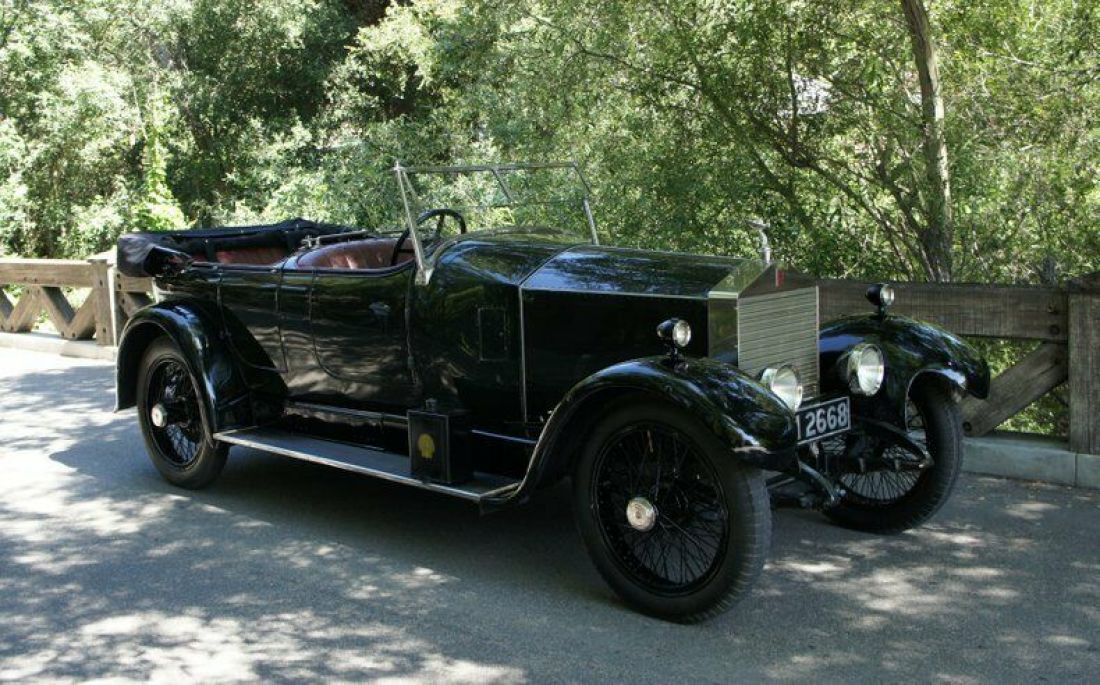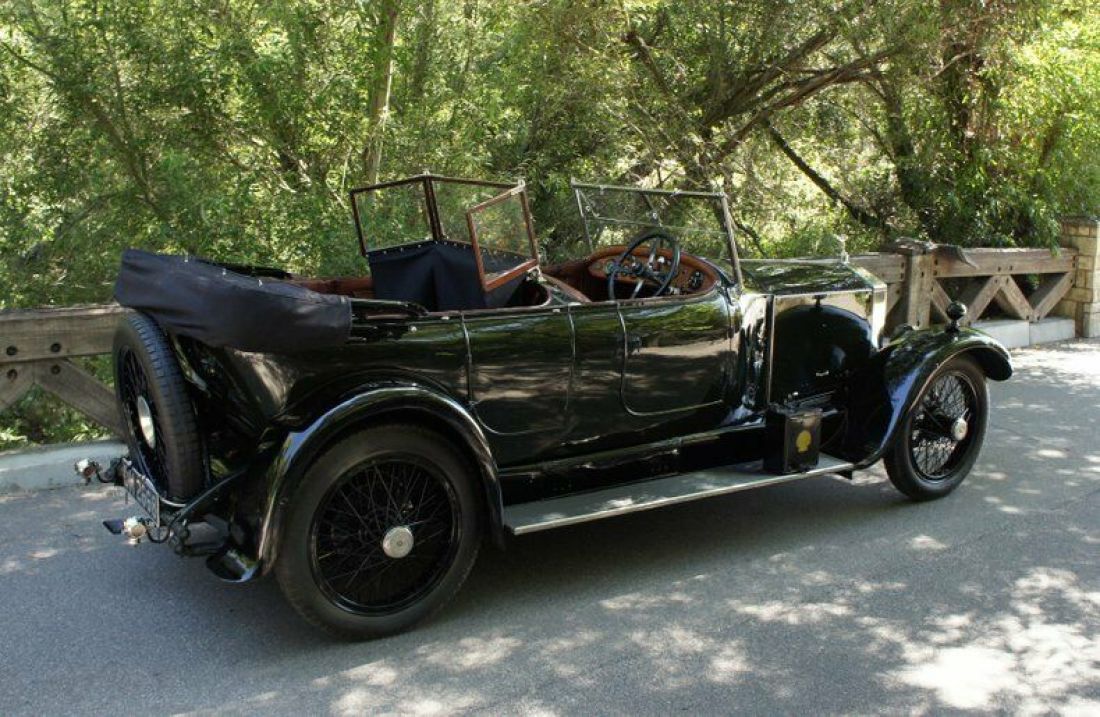1923 Rolls-Royce Torpedo Tourer by Barker
- Location: Santa Barbara, California, United States
- Condition: Used
- Make: Rolls-Royce
- Model: 20hp Torpedo Tourer by Barker
- Year: 1923
- VIN: 54S4
- Color: Green
- Engine size: 6cyl.
- Interior color: Other
- Vehicle Title: Clean
1923 Rolls-Royce 20hp Torpedo Tourer by Barker Description
| eBay Template- Year: 1923
- Mileage: 0
- Primary color: Green
- Transmission type:
- Engine: 6cyl.
*Chassis no: 54S4
*Engine no: G273
-3,127cc OHV Inline 6-Cylinder Engine
-Single Carburetor
-Coil and Magneto Ignition
-3-Speed Manual Transmission
-Leaf Spring Suspension
-Rear Mechanical Brakes
*Stunning Barrel-sided custom coachwork by Barker & Co
*Desirable Overhead-valve Six-cylinder engine
*Documented by the Rolls-Royce Foundation
*Excellent Rolls-Royce for many prominent touring events around the world
THE ROLLS-ROYCE TWENTY
It was a significant meeting in the Midland Hotel, Manchester, on 4th May 1904. The Hon. Charles Stewart Rolls had traveled to Manchester by train with his business associate and fellow pioneer motorist, Henry Edmunds, for a meeting with Mr. Frederick Henry Royce who arrived from his Cooke Street offices, off Stretford Road, Manchester. The significance of that meeting cannot possibly have been perceived by either party, however the outcome was that the names of Rolls and Royce would forever be linked and fall into common parlance, not only in the motoring world but in the field of aviation. Here was the start of a legend where those two names became synonymous with superlative quality in so many spheres.
Changing times after WWI eventually forced the abandonment of Rolls-Royce's 'one model' policy, and the all-new Twenty model joining the existing 40/50hp Silver Ghost in 1922. The 'Twenty' reflected Henry Royce's interest in contemporary trends within the American automobile industry, incorporating unit construction of engine and gearbox, the latter featuring the modern innovation of a central ball change, and 'Hotchkiss drive' rear axle. The engine, Rolls-Royce's first with overhead valves, was a six-cylinder unit displacing 3,127cc. Favorably received as the Twenty was, its three-speed transmission's central gearchange was not well liked, and when four-wheel, servo-assisted brakes were introduced in 1925, a four-speed gearbox with right-hand, gated change replaced the original three-speeder.
The Twenty's introduction of enabled the company to cater for the increasingly important owner-driver market that appreciated the quality of Rolls-Royce engineering but did not need a car as large as a 40/50hp Ghost or Phantom. The car proved eminently suited to town use yet could cope admirably with Continental touring when called upon.
THE MOTORCAR OFFERED
Offered here is a stunningly beautiful Barker-bodied Rolls-Royce Twenty Tourer. Based on copies of factory records and ledgers provided by the Rolls-Royce Foundation, the earliest information available shows that chassis 54S4 was tested on February 14, 1923, as the 168th Twenty chassis in the production run. The chassis completed with drivetrain and axles was sent right to Barker & Co when new, where it was fitted with the lovely, Barrel-sided Open Tourer coachwork as seen on the car today. The finished Rolls-Royce received its final inspections on June 29, 1923 and was then delivered to a Mr. F. Goodbody in Wales. 54S4 then went to a Rolls-Royce agency in London, where it was sold on November 29, 1924 to Arnold Reckitt, of Yorkshire. Reckitt, an industrialist and supposedly personal friend of Winston Churchill, who used the Twenty to pick up his guests at the train station to be taken to his estate. The Rolls-Royce was later sold to Breckon Hill Motors, Milddlesborough in 1967, at which point an extensive restoration was carried out.
In 1971, the Twenty Barker Tourer was sold to Perry Jenkins of Pebble Beach, California. He had further restoration work done by Herb Wuesthoff in Northern California, including fitting a new 1929 20-type cylinder block.
In 1980, Mr. Jenkins sold the car to Windom Estes, also resident of Pebble Beach. He remained the owner for almost 40 years until recently. During his ownership, 54S4 received extensive cosmetic and mechanical attention, including the installment of a new cylinder head supplied by Frank Cook of the Vintage Garage.
Today this lovely 1923 Rolls-Royce Twenty Dual Windshield Tourer by Barker shows beautifully with handsome patina and is ready for touring and concours shows. The car is offered with tools, a handbook and side curtains, as well as a history file containing factory records from when the car was new.
- ,
Santa Barbara, CA, 93108, US - (805) 568-1934
- http://www.charlescrail.com/
- View our other auctions
- Email to friend
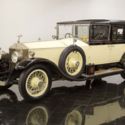 1926 Rolls Royce Phantom I Sedanca de Ville by Barker
1926 Rolls Royce Phantom I Sedanca de Ville by Barker
Mileage: 58,997
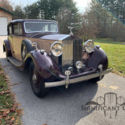 1938 Rolls-Royce Phantom III Sports Saloon by Barker - Excellent Driving Example
1938 Rolls-Royce Phantom III Sports Saloon by Barker - Excellent Driving Example
Mileage: 80000
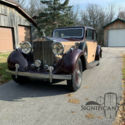 1938 Rolls-Royce Phantom III Sports Saloon by Barker - Excellent Runner!
1938 Rolls-Royce Phantom III Sports Saloon by Barker - Excellent Runner!
Mileage: 80000
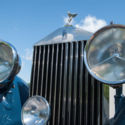 1935 Rolls-Royce 20/25, Series H2, Barker Bodied # 7007, Large factory sunroof
1935 Rolls-Royce 20/25, Series H2, Barker Bodied # 7007, Large factory sunroof
Mileage: 29,581
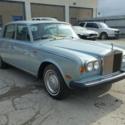 1974 Rolls-Royce Rolls-Royce Leather Seats 103000 Miles Blue Sedan V 8 Automatic
1974 Rolls-Royce Rolls-Royce Leather Seats 103000 Miles Blue Sedan V 8 Automatic
Mileage: 103,000
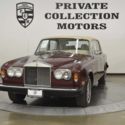 1979 Rolls-Royce Rolls Royce Silver Wraith Collector Car 12k Original Miles Rare
1979 Rolls-Royce Rolls Royce Silver Wraith Collector Car 12k Original Miles Rare
Mileage: 12,480
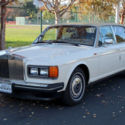 1993 Rolls Royce Silver Spur Clean original California Rolls Royce
1993 Rolls Royce Silver Spur Clean original California Rolls Royce
Mileage: 89,177
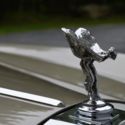 Rolls Royce Silver Shadow Restored by Rolls Royce/ Bentley in Crewe England
Rolls Royce Silver Shadow Restored by Rolls Royce/ Bentley in Crewe England
Mileage: 15,000
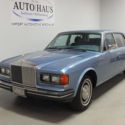 1983 ROLLS ROYCE SILVER SPUR - BEAUTIFUL ROLLS ROYCE! SOLID CAR WITH NO RUST!
1983 ROLLS ROYCE SILVER SPUR - BEAUTIFUL ROLLS ROYCE! SOLID CAR WITH NO RUST!
Mileage: 58,816
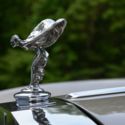 Rolls Royce Silver Shadow Restored by Rolls Royce/ Bentley at Crewe England
Rolls Royce Silver Shadow Restored by Rolls Royce/ Bentley at Crewe England
Mileage: 15289

